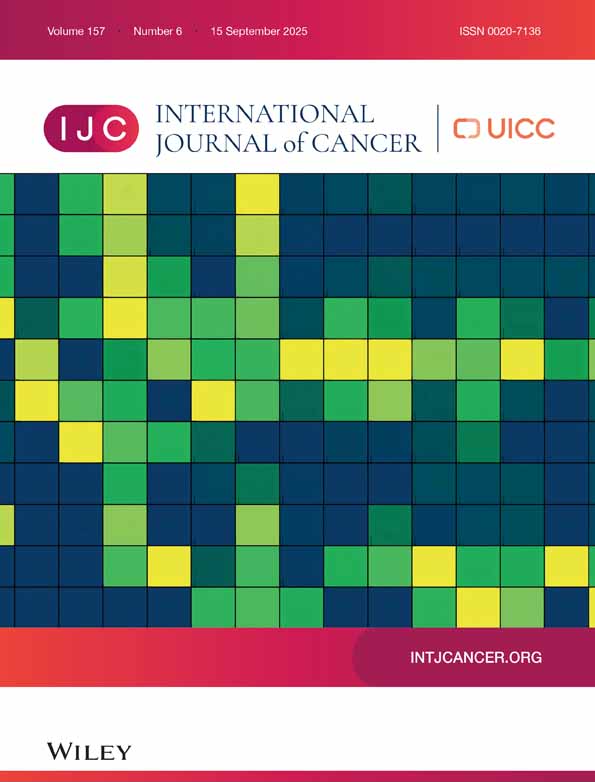Diet and breast cancer: A case-control study in Greece
Abstract
A case-control study of the role of diet in the etiology of breast cancer was conducted in Athens, Greece. There are reasons to believe that the diet of the Greek population is characterized by greater heterogeneity than that in most countries where such studies have been undertaken. The case series consisted of 120 consecutive patients with histologically confirmed breast cancer admitted to either of two teaching hospitals over a 12-month period. The controls were 120 patients admitted to a teaching hospital for trauma and orthopedic conditions during the same period. Dietary histories concerning the frequency of consumption of 120 foods and drinks were obtained by interview. Cases reported significantly less frequent consumption of vegetables as a group and, within that group, specifically of cucumber, lettuce and raw carrot. After adjustment for potential external confounding variables and for confounding between food categories, the odds ratio for persons in the highest quintile of vegetable consumers, relative to those in the lowest quintile, was 0.09 with 95% confidence limits 0.03–0.30. That is to say, the lowest quintile of vegetable consumers had about 10 times the breast cancer risk of the highest quintile. For a score based on consumption of only the 3 specified salad items the odds ratio over the extreme quartiles was 0.12 (0.05–0.32). There was no association with consumption of fats and oils, alcohol or coffee, and no significant association with any other major food category (including alcohol and coffee) after adjustment for confounding variables.




